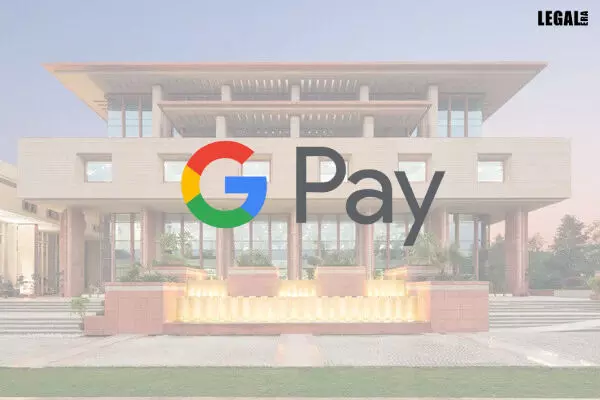- Home
- News
- Articles+
- Aerospace
- Artificial Intelligence
- Agriculture
- Alternate Dispute Resolution
- Arbitration & Mediation
- Banking and Finance
- Bankruptcy
- Book Review
- Bribery & Corruption
- Commercial Litigation
- Competition Law
- Conference Reports
- Consumer Products
- Contract
- Corporate Governance
- Corporate Law
- Covid-19
- Cryptocurrency
- Cybersecurity
- Data Protection
- Defence
- Digital Economy
- E-commerce
- Employment Law
- Energy and Natural Resources
- Entertainment and Sports Law
- Environmental Law
- Environmental, Social, and Governance
- Foreign Direct Investment
- Food and Beverage
- Gaming
- Health Care
- IBC Diaries
- In Focus
- Inclusion & Diversity
- Insurance Law
- Intellectual Property
- International Law
- IP & Tech Era
- Know the Law
- Labour Laws
- Law & Policy and Regulation
- Litigation
- Litigation Funding
- Manufacturing
- Mergers & Acquisitions
- NFTs
- Privacy
- Private Equity
- Project Finance
- Real Estate
- Risk and Compliance
- Student Corner
- Take On Board
- Tax
- Technology Media and Telecom
- Tributes
- Viewpoint
- Zoom In
- Law Firms
- In-House
- Rankings
- E-Magazine
- Legal Era TV
- Events
- Middle East
- Africa
- News
- Articles
- Aerospace
- Artificial Intelligence
- Agriculture
- Alternate Dispute Resolution
- Arbitration & Mediation
- Banking and Finance
- Bankruptcy
- Book Review
- Bribery & Corruption
- Commercial Litigation
- Competition Law
- Conference Reports
- Consumer Products
- Contract
- Corporate Governance
- Corporate Law
- Covid-19
- Cryptocurrency
- Cybersecurity
- Data Protection
- Defence
- Digital Economy
- E-commerce
- Employment Law
- Energy and Natural Resources
- Entertainment and Sports Law
- Environmental Law
- Environmental, Social, and Governance
- Foreign Direct Investment
- Food and Beverage
- Gaming
- Health Care
- IBC Diaries
- In Focus
- Inclusion & Diversity
- Insurance Law
- Intellectual Property
- International Law
- IP & Tech Era
- Know the Law
- Labour Laws
- Law & Policy and Regulation
- Litigation
- Litigation Funding
- Manufacturing
- Mergers & Acquisitions
- NFTs
- Privacy
- Private Equity
- Project Finance
- Real Estate
- Risk and Compliance
- Student Corner
- Take On Board
- Tax
- Technology Media and Telecom
- Tributes
- Viewpoint
- Zoom In
- Law Firms
- In-House
- Rankings
- E-Magazine
- Legal Era TV
- Events
- Middle East
- Africa
Delhi High Court rejects PILs to stop Google Pay operations

Delhi High Court rejects PILs to stop Google Pay operations
Explains that the mobile payment service platform does not need authorization from the Reserve Bank of India
The Delhi High Court has dismissed two Public Interest Litigations (PILs) seeking directions to cease the operations of Google Pay in India for alleged violation of regulatory and privacy norms.
A division bench of Chief Justice Satish Chandra Sharma and Justice Subramonium Prasad noted that Google Pay is a mere third-party app provider for which no authorization is required from the Reserve Bank of India (RBI) under the Payment and Settlement Systems (PSS) Act, 2007.
Stating that Google Pay is not a system provider, the court explained, “It can be safely gathered that the National Payments Corporation of India (NPCI) is the operator of the UPI system for transactions in India and is a ‘system provider’, which is authorized by the RBI under the PSS Act. This is to extend its services for facilitating transactions and the transactions carried out via UPI through Google Pay are only peer-to-peer or peer-to-merchant transactions and is not a system provider under the PSS Act.”
The bench rejected the contention that Google Pay was actively accessing and collecting sensitive and private user data.
It held, “The UPI Guidelines, 2019 also make it exceedingly clear that data may be stored under two types, namely, ‘customer data’ and ‘customer payments sensitive data’. While the former may be stored with the app provider in an encrypted format, the latter can only be stored with the payment services providers bank systems, and not with the third-party app under the multi model API approach that Google Pay has opted for.”
The order was passed on a plea by advocate Abhijit Mishra who moved the court arguing that the operations of Google Pay as a payment system provider were unauthorized for want of obtaining necessary permissions. Hence, storing sensitive information of Indian citizens would be tantamount to violations under the Aadhaar Act, 2016 and the PSS Act.
The RBI was represented by advocates Ramesh Babu MR, Manisha Singh, and Nisha Sharma.
Senior Advocate Arun Kathpalia along with advocates Saurabh Kumar, Abhishek Kr Singh, Saurabh Kumar, and Diksha appeared for Google Pay.



